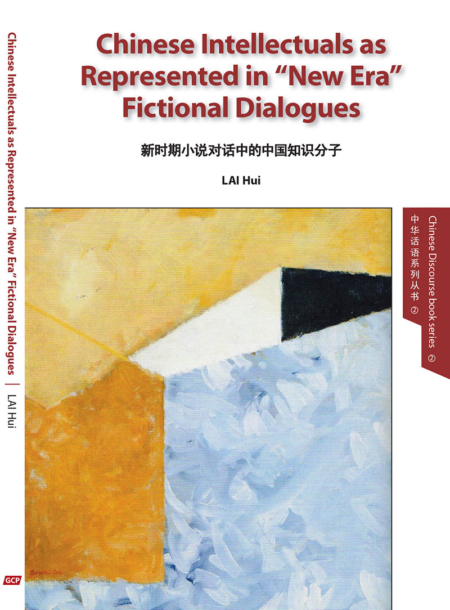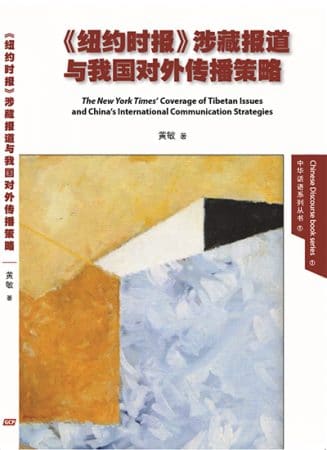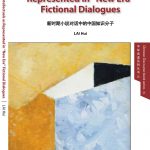Description
About the author
Dr Hui Lai is a Researcher and Lecturer at the Research Centre for Discourse and communications, Zhejiang University of Media and Communications, China. She received her doctoral degree in Linguistics at Lancaster University. Her research interests include stylistics, corpus linguistics and discourse analysis. She has published several papers concerning narratology, stylistics and language studies in journals such as Foreign Literature Studies, Foreign Language and Literature, Research of Chinese Literature and Discourse Studies. She also participates in a MOE (Ministry of Education in China) Project on Humanities and Social Sciences and a NSSF (The National Social Science Fund of China) Major Project on Art Theory.
Chinese Discourse Series
This is the second book in the Chinese Discourse series, edited jointly by Professor XIE Lizhong, Director of the Centre for Social Theory Studies, Peking University; Vice-President of the Chinese Sociological Association, China; and Professor QIAN Yufang, Director of Institute of Chinese and Foreign Discourses, Zhejiang Gongshang University, China; Vice-President of the Discourse Research Association of China. It
is published by Global Century Press from 2016.
More info about this book
In order to carry out the study, first, the direct speech of intellectuals and their leaders is extracted and compiled into corpora for a ‘key key-words’ analysis (see section 3.3.2 for a definition of key key-words). Second, a stylistic analysis is undertaken with the aim of conducting a more detailed qualitative investigation of the dialogues. Three dialogues in each of the two periods are selected for the stylistic analysis.
The key-words derived from this analysis describe features of the speech of intellectuals, the speech of intellectuals as compared to the speech of leaders and the speech of leaders as compared to that of intellectuals. The study shows that the key key-words indicating topics of the speech and those characterising the style of the speech represent the social identity of intellectuals. A comparison of these key keywords between the two periods uncovers the diachronic change in the status of intellectuals.
The corpus approach is complemented by a stylistic analysis, which explores dialogues selected from different years to emphasise the diachronic change. A dual model is formulated to incorporate dialogue analysis into a larger structure of goal development analysis. The study shows how speakers use discursive strategies to manage relationships and have their situational goals achieved in interaction. Negotiation of goals invokes the institutional and social identities of speakers, bringing out their status
Contents
Prefaces
General preface one by XIE Lizghong
General preface two by QIAN Yufang
List of figures
List of tables
Chapter 1: Introduction
1.1 Brief introduction to ‘new era’ Chinese intellectuals
1.2 Fiction Monthly
1.3 Dialogues between intellectuals and their leaders in Fiction Monthly
1.4 Research questions
1.5 Analytical frameworks
1.6 Structure of the book
Chapter 2: Chinese intellectuals: a background study
2.1 Introduction
2.2 From shi (ancient scholars) to zhishi fenzi (intellectuals) to zhuanye jishu renyuan (professional and technical personnel)
2.3 National policies towards intellectuals since the foundation of the PRC
2.4 Definitions of ‘intellectual’ in Chinese and the definition adopted in this book
2.5 Classification of Chinese intellectuals
2.6 Conclusion
Chapter 3: Theoretical framework and methodology
3.1 Introduction
3.2 Fictional dialogue as social discourse
3.3 Methodology for a corpus-based study
3.4 Methodology for stylistic analysis of dialogues
3.5 Explanatory remarks on data translation
3.6 Conclusion
Chapter 4: Intellectuals in Fiction Monthly: a corpus-based study
4.1 Introduction
4.2 A general analysis of ISC and LSC wordlists
4.3 Key key-words analysis of ISC and LSC.
4.4 Conclusion
Chapter 5: Intellectuals in Fiction Monthly 1980–June 1989: a stylistic analysis
5.1 Introduction
5.2 A review of stories concerning intellectuals from 1980 to June 1989
5.3 Three case studies of I–L conversation from 1980 to June 1989
5.4 Conclusion
Chapter 6: Intellectuals in Fiction Monthly July 1989–2005: a stylistic analysis
6.1 Introduction
6.2 A review of stories concerning intellectuals from July 1989 to 2005
6.3 Three case studies of I–L conversation from July 1989 to 2005
6.4 Conclusion
Chapter 7: Conclusion
7.1 Introduction
7.2 Research findings
7.3 Reflections on the combined approach to fictional discourse
7.4 Contributions of the research
7.5 Further research
References
Appendices
1 Stories concerning intellectuals from 1980 to June 1989
2 Stories concerning intellectuals from July 1989 to 2005
3 Full text of dialogue excerpts with translation (Chapter 5)
4 Full text of dialogue excerpts with translation (Chapter 6)
Dual language information from Global Century Press
1 About the book
1.1 Abstract and about the author
1.2 Table of contents
1.3 About this book series and other books in this series
2 More from Global China Press
2.1 GCP style rules for rendering Chinese-English dual languages
2.2 GCP style rules for Chinese names
2.3 Examples of GCP book series
2.4 Journals and periodicals




